-
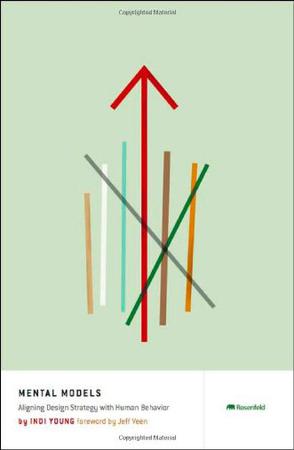
Mental Models
-
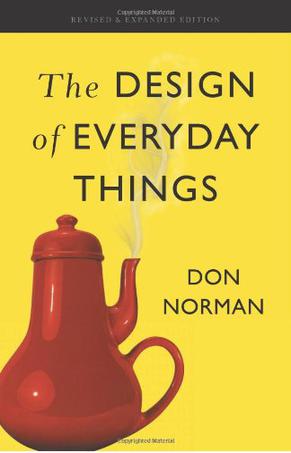
The Design of Everyday Things
Even the smartest among us can feel inept as we fail to figure out which light switch or oven burner to turn on, or whether to push, pull, or slide a door. The fault, argues this ingenious—even liberating—book, lies not in ourselves, but in product design that ignores the needs of users and the principles of cognitive psychology. The problems range from ambiguous and hidden controls to arbitrary relationships between controls and functions, coupled with a lack of feedback or other assistance and unreasonable demands on memorization. The Design of Everyday Things shows that good, usable design is possible. The rules are simple: make things visible, exploit natural relationships that couple function and control, and make intelligent use of constraints. The goal: guide the user effortlessly to the right action on the right control at the right time. In this entertaining and insightful analysis, cognitive scientist Donald A. Norman hails excellence of design as the most important key to regaining the competitive edge in influencing consumer behavior. Now fully expanded and updated, with a new introduction by the author, The Design of Everyday Things is a powerful primer on how—and why—some products satisfy customers while others only frustrate them. -
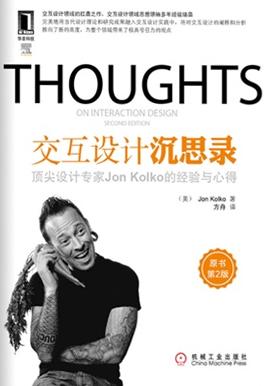
交互设计沉思录
本书由交互设计领域的思想领袖Jon Kolko所著,是交互设计领域的里程碑之作。本书完美地将当代设计理论和研究成果融入交互设计实践中,将对交互设计的阐释和分析推向了新的高度。本书重点阐释了对交互设计领域的最新理解和洞察,以及人与科技之间的联系。作者通过引人入胜的内容实现对设计师的教化,帮助设计师教化商业人士,同时确立交互设计在商业领域中的地位。本书不但探讨了经济局面的变化、互联性的增强和全球化的科技普及如何影响针对人类行为的设计活动和设计本身,而且对交互设计的定义进行了更好地阐释,主要涵盖三个方面:其一,交互设计涉及的各个知识层面;其二,交互设计作为“以人为本”的学科所包含的基本概念;其三,交互设计师在实践当中获得的经验和采用的方法与手段。此外,本书还讨论了(设计)语言、观点和话术在产品、服务和系统的设计当中所扮演的角色,并介绍了交互设计师处理关乎行为和时间的复杂问题的过程,该过程包括构造大量的数据、考察用户、尝试为随时间不断演化的人类行为提供支持等。 -
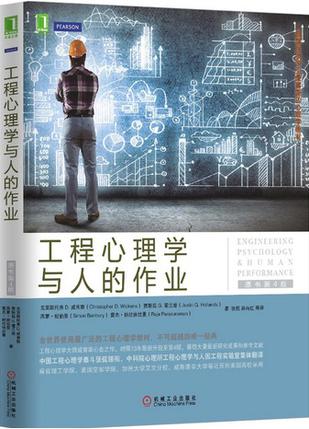
工程心理学与人的作业
本书是当今西方使用最广、影响最大的一本工程心理学教科书,由美国最富盛名的专家所著。主要讲述工程设计、使用过程中人—机交互的心理因素,意在从心理的角度关注并改善人类作业的绩效。前半部分论及知觉、注意、空间言词认知、记忆、学习与决策,强调认知心理学这些领域的潜在应用;后半部分具体涉及行动选择、时间分配、差错与应激。全书所包括的有关信息加工系统的人的力量与局限性及其对系统设计的关系的知识,对全世界的人都是普遍适用的。 这是一部有代表性的工程心理学名著,它具有以下主要特点:(1)以人的认知信息加工心理学为基础,系统阐述与工程技术设计有关的心理学问题,是一部理论性强、与技术设计联系密切的工程心理学著作。不论已具有心理学基础知识的读者,还是已掌握工程技术设计知识的读者,都能从本书中得到启示。(2)本书引用了大量的工程心理学的实验结果,立论依据充足,科学性强。书中引用的大量文献可为读者进一步深入钻研工程心理学引线指路。(3)本书内容新颖,引用的文献大多反映最近10年来美国工程心理学界的研究成果,可从阅读本书中了解当代美国工程心理学研究的发展趋势。 本书分13章,内容涉及人的作业的广泛范围。第1章导论中,工程心理学被放在较广泛的人类因素和系统设计的框架中。第2章至第8章,涉及知觉、注意、空间与言词认知、记忆、学习和决策,强调认知心理学这些领域的潜在应用。第9章至第12章,包括行动的选择与执行、时间分配、差错与紧张,因而所涉及的范围与工程领域有更多传统上的联系。最后是第13章,讲的是系统发展方向,探讨过程控制、复杂系统和自动化。这一章表明前面各章所解释的原则将日益显示出对特定应用领域的重要性。 -
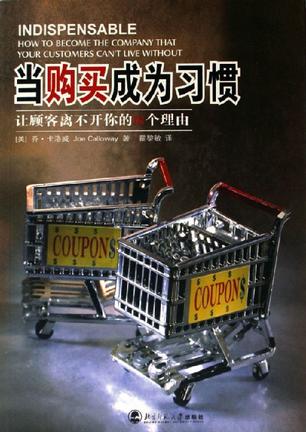
当购买成为习惯
想一想你生活中离不开的公司,我们都至少有一家这样的公司。它可能是短途货运船舶的提供者,也可能是为你的办公提供便利的互联网公司。他们赢得你的订单与持续的忠诚的秘密是什么?他们是如何做的?最重要的是,他们做的哪些事也是你在对待你的客户时应该做的?怎样才能成为必不可少的公司呢?秘密何在? 本书将揭晓答案。作者研究了成为顾客们完全必需的公司的重要因素,并通过实际的商业案例,实地访谈,以及更多卓有成效的商业理念和创意,告诉企业如何打破价格怪圈,提升持久的竞争力。本书可以帮助中国的企业从价格战的泥沼中解脱出来,适合当今富有远见的商业人士阅读。 在激烈的市场竞争下,产品和服务变得容易被替代,价格也因此成为顾客选择的决定因素。除非你能给他们提供从其它任何地方都买不到的东西,他们才不会被别人的低价所吸引。因此,商业的着眼点应该超越商品本身,创造出价格之外的客房忠诚度。在这本书中,著名的商业咨询专家乔·卡洛威通过实际的商业案例,告诉企业如何打破价格怪圈,提升持久的竞争力。 成为必不可少的公司,让消费者离不开你,把产品和服务从可替代品变成必需品,是各个行业不同规模的企业追求的目标,作者在书中总结并阐述了五个推动力,足以帮助企业迅速找准方向,进入可持续发展的良性循环中。 书中包括顾大量的案例分析,实地访谈,以及更多卓有成效的商业理念和创意,这些正是当今富有远见的商业人士所需要阅读的。 -
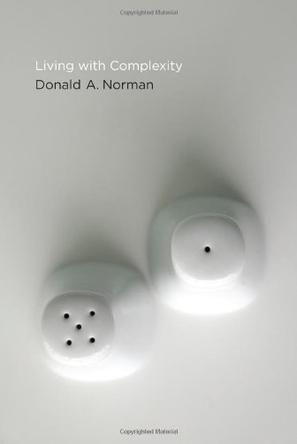
Living with Complexity
If only today’s technology were simpler! It’s the universal lament, but it’s wrong. We don't want simplicity. Simple tools are not up to the task. The world is complex; our tools need to match that complexity. Simplicity turns out to be more complex than we thought. In this provocative and informative book, Don Norman writes that the complexity of our technology must mirror the complexity and richness of our lives. It’s not complexity that’s the problem, it’s bad design. Bad design complicates things unnecessarily and confuses us. Good design can tame complexity. Norman gives us a crash course in the virtues of complexity. But even such simple things as salt and pepper shakers, doors, and light switches become complicated when we have to deal with many of them, each somewhat different. Managing complexity, says Norman, is a partnership. Designers have to produce things that tame complexity. But we too have to do our part: we have to take the time to learn the structure and practice the skills. This is how we mastered reading and writing, driving a car, and playing sports, and this is how we can master our complex tools. Complexity is good. Simplicity is misleading. The good life is complex, rich, and rewarding—but only if it is understandable, sensible, and meaningful.